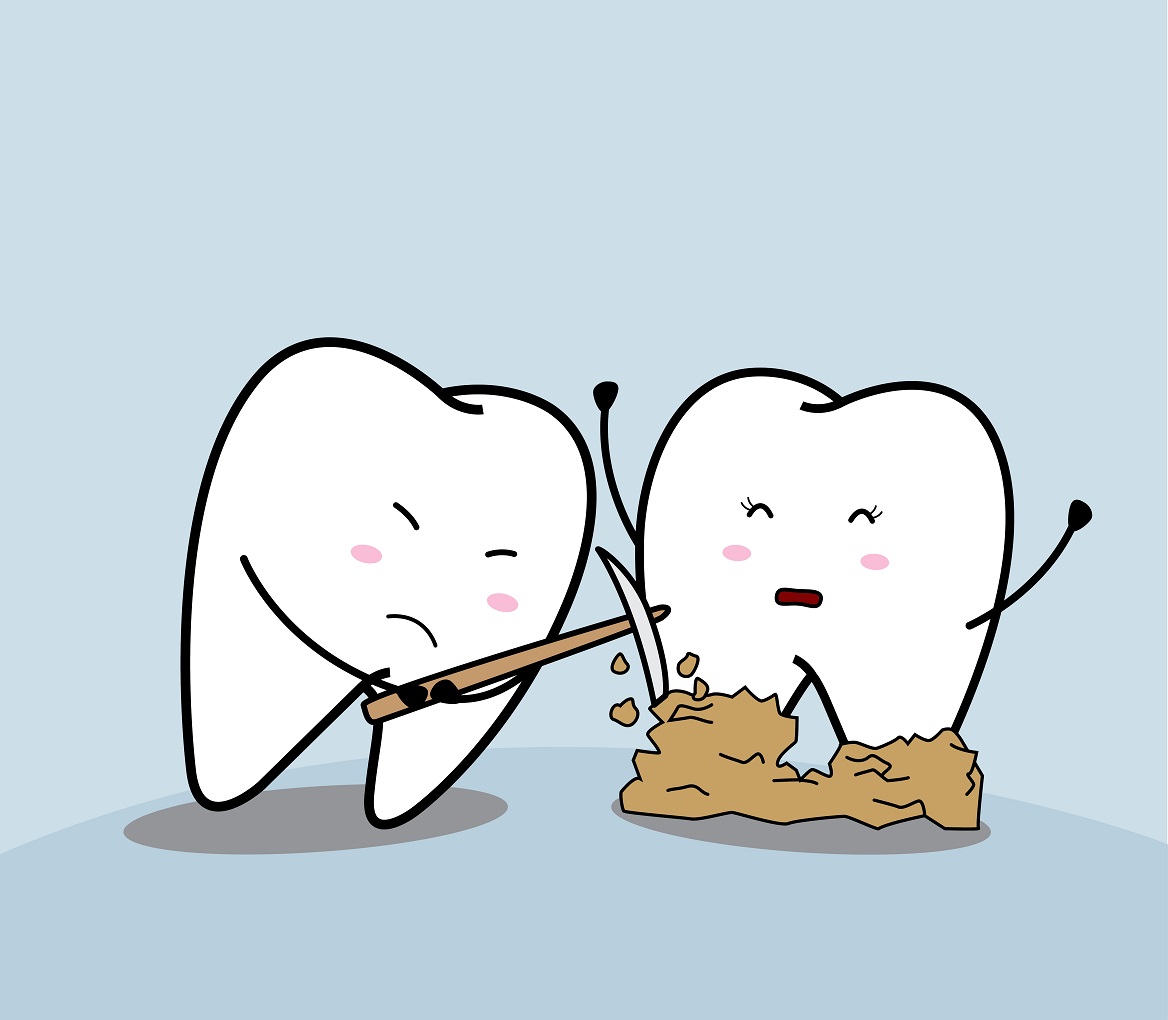Many patients are mistaken when they assume that tartar is merely an aesthetic problem. Aside from looking gross, it is also the hotbed of many kinds of dental illnesses, and is the root cause of periodontitis, gingivitis, alveolitis, and can negatively impact your immune system as well. This article wishes to shed some light on the terrible nature of plaque and tartar.

What is tartar?
Tartar starts off as dental plaque, that sticky gunk on your teeth that is 70% bacteria. These bacteria in and of themselves do not actually cause any sort of dental woes, but if you do not clean your teeth regularly, then they will form plaque and this plaque will harden and calcify. The by-products of these bacteria are acidic and cause tooth decay. At first, only a very thin, barely perceptible layer of plaque calcifies into tartar, but the calcification process does not end, and the layer of tartar becomes thicker and thicker. Plaque does not need weeks or months to calcify; 2-3 days without a toothbrush will be enough for your plaque to turn into tartar. The hardened plaque will turn brownish, and will show itself as splotches or lines on the tooth surfaces, which, aside from looking repulsive, is also extremely bad for the teeth and gums.
What kind of illnesses does tartar cause?
Aside from the rather unpleasant appearance of brownish teeth, halitosis also appears, and these are just the smallest problems that tartar causes. Tartar calcification is almost always followed by periodontitis, during which the gums will become puffy and red, and you may see blood when you brush your teeth.
If you are in a constant state of inflammation, then your gums will start to shrivel and pull back, causing gum recession and loss of gum material. This is a huge problem, as your run the risk of losing your teeth, as the bones and alveolus that hold the teeth in place will become infected too. You may also experience sensitivity to hot and cold, and of course, the fact that your teeth may fall out.
Tooth enamel interacts biochemically with plaque, causing the pH levels in the mouth to be out of balance, and become acidic. Tis causes vital nutrients and minerals to be dissolved from the tooth enamel, which causes tooth decay.
If left unchecked, periodontitis can affect the rest of the body as well, and can cause illnesses in seemingly unrelated parts of the body. If your gums bleed when you brush them, then the tiny sores and cuts in your gums can cause the bacteria to enter your blood stream, and start living in the walls of your arteries. This can cause blood clots, which can cause death.
A study done in New Zealand by Otago Dunedin University sheds light on the fact that bacteria originating in the mouth, but later found in the veins and blood supply can cause chronic infections, which can cause arteriosclerosis. The researchers found that people who regularly undergo plaque and tartar removal and professional hygiene sessions are much less likely to suffer from these diseases, and have much better overall arterial health.

